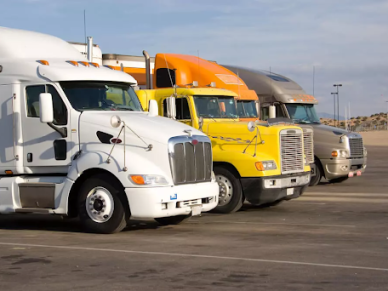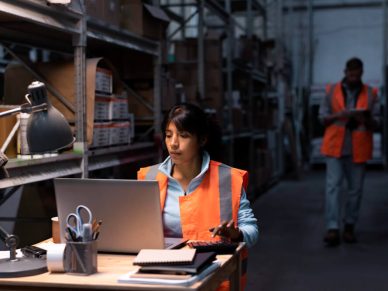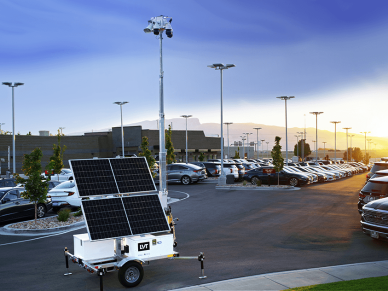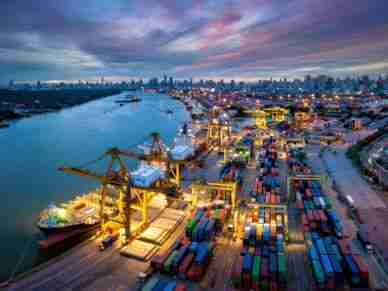Maintaining an ethical supply chain with blockchain technology
We are fortunate to live in an age where we have technology in the palm of our hand that was largely unimaginable a few decades ago, not to mention access to quality food and clothes shipped to us from all over the world. However, the dirty, not-so-little secret surrounding the supply chain that allows us to enjoy these products is deeply troubling.
In some cases, the products that we enjoy come from underdeveloped countries where modern slavery is still a grave concern. A 2018 report from the Global Slavery Index concluded that $354 billion of products shipped to G20 countries have forced labor in their supply chain. Part of the problem is that many companies involved are either unaware of their exact sourcing or are willfully ignorant.
The same study explains that the most “at-risk” products are ones many of us can’t live without: mobile devices and laptops, clothing, seafood, cocoa, and sugarcane—in that order. It’s certainly hard to imagine life without any of these modern necessities. Fortunately, it looks like soon we won’t have to enjoy them without turning a blind eye to the facts so we sleep better at night.
Supply Chain Meets Blockchain
Incorporating blockchain technology into supply chain management provides transparency and accountability, even for the most at-risk industries. Consumers, producers, and governments could potentially know exactly where products have come from and how workers are treated, then respond accordingly.
The same technology that is used to track each and every transaction of cryptocurrency can also be used to check an entire supply chain. It has become vital for companies to be able to know the conditions on every link of their supply chain.
Companies like retailer H&M have made an effort towards transparency in their supply chain by offering a map and list of their suppliers available on their website, complete with grades for each facility. Incorporating blockchain takes that concept a step further by reassuring all parties involved that the information regarding the chain is accurate and the ratings are honest.
Putting It into Practice
While blockchain is an emerging technology, it has already been put into practice in certain supply chains. IBM has created its Food Trust network and combined with major food retailers and producers including Dole, Driscoll’s, Golden State Foods, Kroger, McCormick and Company, McLane Company, Nestlé, Tyson Foods, Unilever, and Walmart to help create a transparent food chain for their goods.
The impetus came from the fact that more than 400,000 people die every year from contaminated food. Blockchain technology allows a quick overview of the supply chain and every possible point of contamination. A trustworthy and transparent supply chain makes it possible for problems to be addressed, shipping to be stopped, and recalls to be issued—saving lives in the process.
Similarly, Provenance has developed a way to track fish caught in Southeast Asia from the sea to the plate using blockchain technology. Whenever a fish is caught it has an RFID tag attached which uploads data to the cloud and is stored on a distributed ledger. Every step of the way, the fish is scanned by mobile devices, following its path, until it eventually ends up on a plate.
Fighting Modern Slavery
Using blockchain in the battle to end modern slavery could prove successful in a similar manner. Smart contracts can be made available on the blockchain, assuring that each employee is being paid a living wage. It also helps avoid “placement fees” which are charged to workers, placing them in debt before even starting the job and forcing them to surrender much, if not all, of their paychecks back to the employers.
Additionally, wages paid in digital currency on the blockchain are unalterable and deposited into a secure digital wallet. Payments can easily be tracked to make sure laborers are paid the right amount on time.
Another issue that perpetuates modern slavery is the confiscation of identification and other paperwork by employers, essentially trapping laborers at the job. Worker ID databases on blockchain make sure no one goes missing, keeping employees safe and holding employers accountable.
Wearable tech not only helps identify workers, it also allows for closer monitoring of conditions. Biometric data recorded from devices and stored on blockchain can monitor heartbeat and other vitals, alerting authorities to conditions where employees are overworked, beaten, not being fed, or otherwise abused.
The Reality
There is still a way to go as far as implementing the technology that allows for a transparent supply chain using blockchain—including the acceptance by both employees and employers of tracking workers with wearable devices. Prohibitive costs and suspicion on the part of companies further impede the universal acceptance of cleaning up supply chains across all industries.
One thing is for sure, blockchain is transforming the way business is being conducted across the planet and it will continue to be further incorporated in all industries. Finding ways to successfully use it to put an end to the modern slavery that penetrates the supply chains of some of our favorite products should be pursued.













